Virgin TV V6 box review: Virgin Media's Sky Q rival is here
Is Virgin Media's new 4K, HDR, Dolby Atmos-packing TiVo set-top box a match for Sky Q?
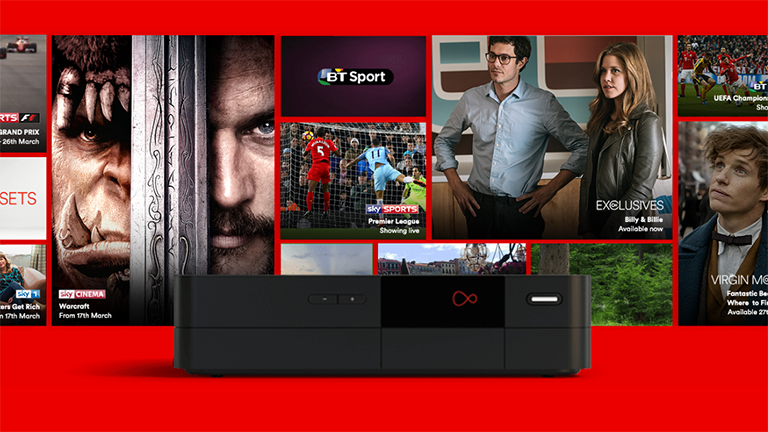
Virgin's V6 delivers loads of content and a faster, slicker experience, however many of its headline features are underused right now
-
+
Faster, slicker UI and experience
-
+
Vast selection of content
-
+
Hardware is more compact and easier to set up
-
+
6 channels can be recorded at once
-
-
Little 4K content
-
-
Advanced features currently underused
-
-
No Amazon Prime Video
-
-
Not a looker
Why you can trust T3

Here's the quick take-away. Virgin Media's V6 set-top box is easier to set up, faster and slicker to use, and supports advanced features like 4K, HDR and Dolby Atmos. A such, if you are currently a Virgin customer and are using one of its older model TiVo boxes then, without doubt, you will get on much better with the V6.
- Upgrade your TV: these are the best 4K UHD TVs on the planet
- Further televisual options: best TV under £1000
- Best TV under £500
However, while the V6 box is better, many of its advanced features are trapped in the land of potential, with no broadcast 4K content, only upcoming HDR support, and little content capable of benefiting from Dolby Atmos. As such, if you are expecting to lay down the £99.95 (or £49.95 if you are a Full House or VIP bundle user) and immediately enter a stunningly rich world of 4K, HDR content then think again.
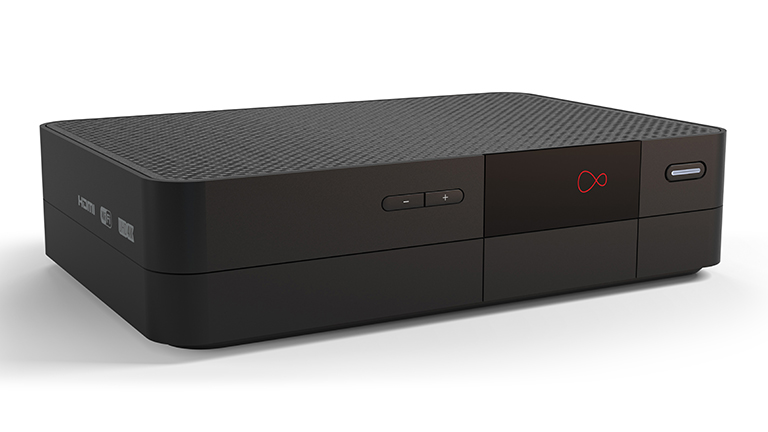
We guess the question you need to ask yourself therefore before pulling the trigger is just how badly you want a faster box and slicker user interface to browse Virgin's vast selection of content? As if you are quite happy with the speed of your existing TiVo then now probably isn't the right time to upgrade (especially if you can stream 4K, HDR content directly through your TV). If, like us here at T3 Towers however, you couldn't wait to get a speed boost, then it probably is worth your investment despite the aforementioned caveats.
Virgin V6 TV box hardware and specifications
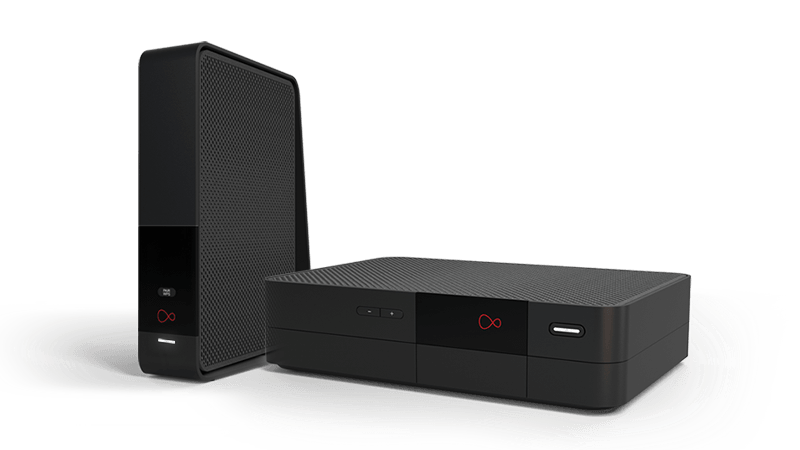
The Virgin V6 TV box comes with a 1TB hard drive, which is large enough for 100 hours of HD recordings, the ability to record six programmes simultaneously while watching a seventh, and also allows the ability of simultaneous viewing on other TiVo boxes and up to two mobile/tablet devices (including the new Telly Tablet).
In terms of resolutions, the V6 supports 576i, 576p, 720p, 1080i, 1080p and the big one, 2160p 4K. At the rear of the device you get an IEC connector, USB 2.0 port, HDMI 2.0a HDCP 2.2-compatible port, digital optical port, 3.5mm audio jack, Gigabit Ethernet RJ45 port and, of course, a power supply port.
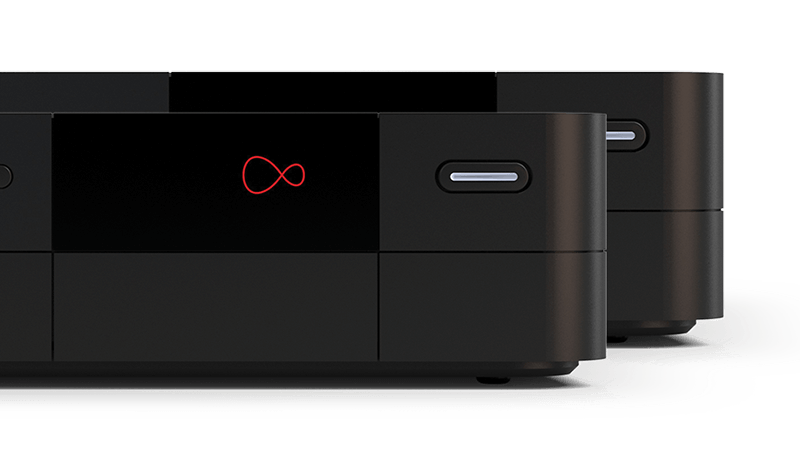
Dimensions of the V6 sit at 230mm x 153mm x 55mm, while weight sits at 1.04kg. Internally, the box comes switchable 2.4GHz and 5Ghz IEEE802.11a/b/g/n/ac 3x3 MIMO Wi-Fi, as well as IR and RF4CE remote control. The front of the V6 box is quite minimalist, with channel down and up buttons, a standby button and three LED lights.
Virgin V6 TV box installation
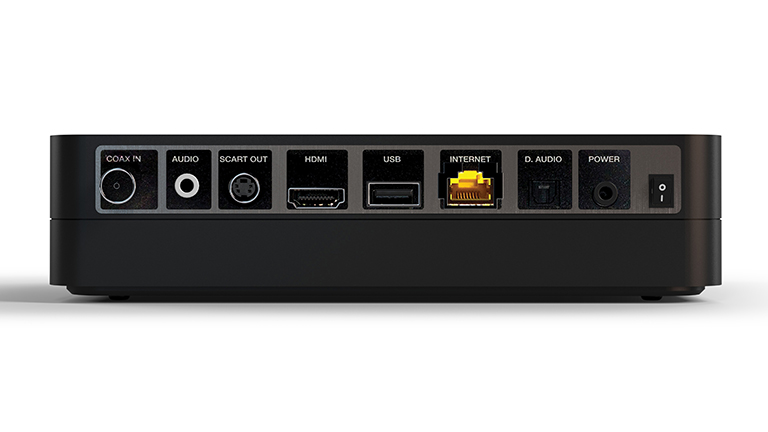
Obviously you can have the V6 installed by a Virgin Media engineer, however if you opt for the cheaper quick start package (read: do it yourself), then you'll be presented with the system, as well as its cables and controller, in a big brown cardboard box.
Get all the latest news, reviews, deals and buying guides on gorgeous tech, home and active products from the T3 experts
The first thing you are required to do is activate the unit, which necessitates a call to Virgin Media. Once activated (automatically) a signal is sent to your line that effectively switches on the system's capabilities. You are then free to follow the pictorial instruction guide that comes with the V6. This at first guides you through unplugging your old TiVo box and then installing the V6.
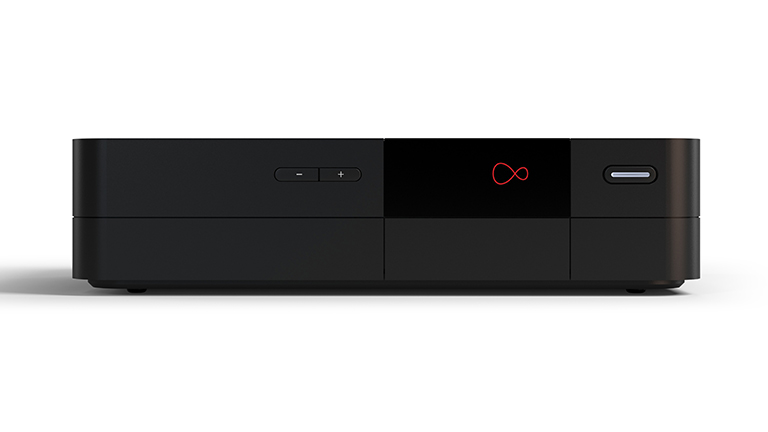
And Virgin customers will be pleased to hear that not only is the V6 far more compact than its previous system but it is far easier to install too. Ports on the back of the box are clearly labeled and, in a great design choice, the TV coax cable now no longer needs to be screwed directly onto the system, with an included push on adapter included.
TV coax in, along with HDMI, network, audio and power, and you can boot the system into life. As with previous iterations of Virgin's TiVo boxes, the V6's startup is largely automatic, with the system auto configuring and running diagnostics to make sure everything is connected properly. Once this is achieved the V6 then proceeds to play a short, 3-minute, introductory video that guides users around the system's features and layout.
Virgin V6 TV box user interface and search
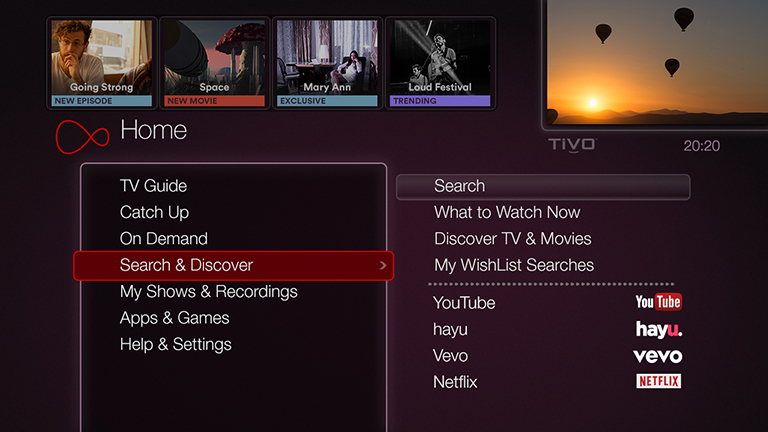
Navigation of the V6's user interface comes courtesy of the V6's new remote, which has the same figure of eight design as the previous iteration, however now is smaller and more compact like the system itself. The layout of the UI's menu is the same too, however now flipping between categories, channels or shows is far faster and more responsive than before. This is excellent news as past systems have been - at times - maddeningly slow, with lag making it a chore to find and access content.
Finding content on the V6, however, is one of the set-top box's strongest features, with that rapidity of use partnering really well with the box's excellent cross-platform smart search capabilities. Smart search on the V6 box is contextual and works across all content, no matter where it has come from. So, for example, if you search for a show like Stranger Things, which is a Netflix exclusive, then the V6 box will pull that in from the streaming service for you, meaning you don't need to start up the separate app to find and/or begin the show.
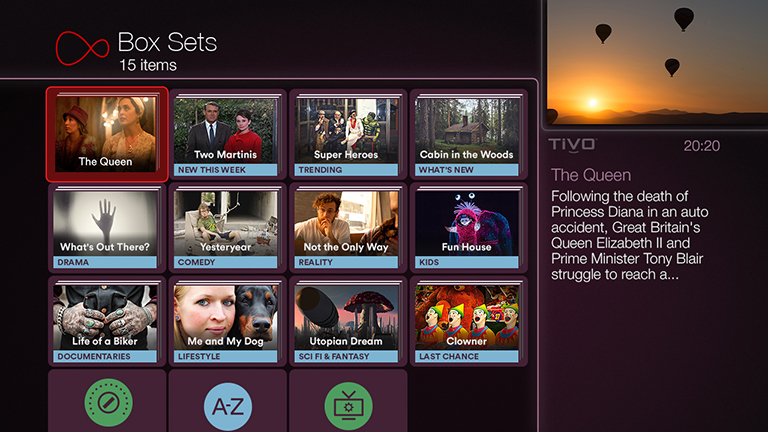
The same is true of live TV, box sets, recorded shows and even recorded shows that you have since deleted off the box, with all content drawn in from the various different sources and presented on the UI front end as if they all came from one. The slightly dated presentation of the TiVo menu, which favours text over imagery, takes a little away from the visual quality of all this slickness, however with the V6 Virgin has added in more show imagery and channel logos wherever possible.
Virgin V6 TV box features
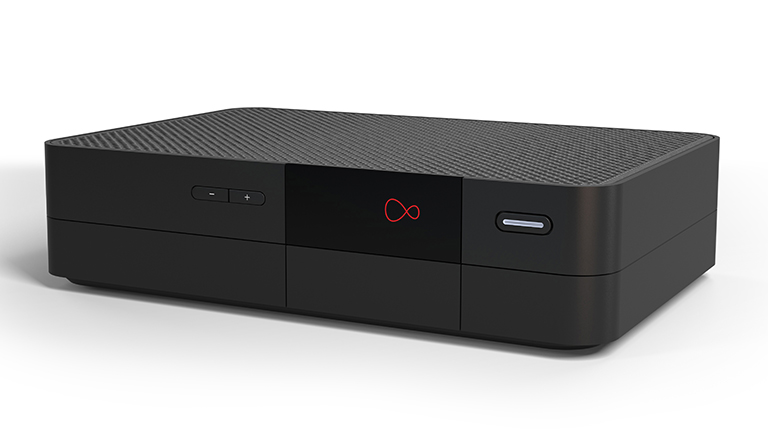
As we mentioned at the beginning of this review, the Virgin V6 box comes packing a HDCP 2.2-compatible HDMI port and 4K, HDR playback support. As such, if you have a 4K, HDR TV then the V6 is technically a perfect match for you, natively outputting the menu and any compatible content at 2160p. Indeed, the inclusion of HDCP 2.2 compatibility shows Virgin is thinking ahead with the V6 - so to the fact that it technically has 8 TV tuners built in - however right now these features are very much up and coming.
This is simply because Virgin is currently lagging behind its competitors in terms of its 4K content offering. Right now you can watch 4K content on the box that is pulled in from Netflix (providing you have a premium subscription that is), however nothing much else. In contrast, rivals have Ultra HD sports on offer and large 4K film libraries themselves for people to peruse, let alone any 4K content delivered by 3rd party sources. Obviously Virgin are going to introduced more and more 4K content over time, as too will broadcasters, however it is worth noting as the box is very much advertised on its UHD 4K credentials.
Virgin V6 TV box verdict
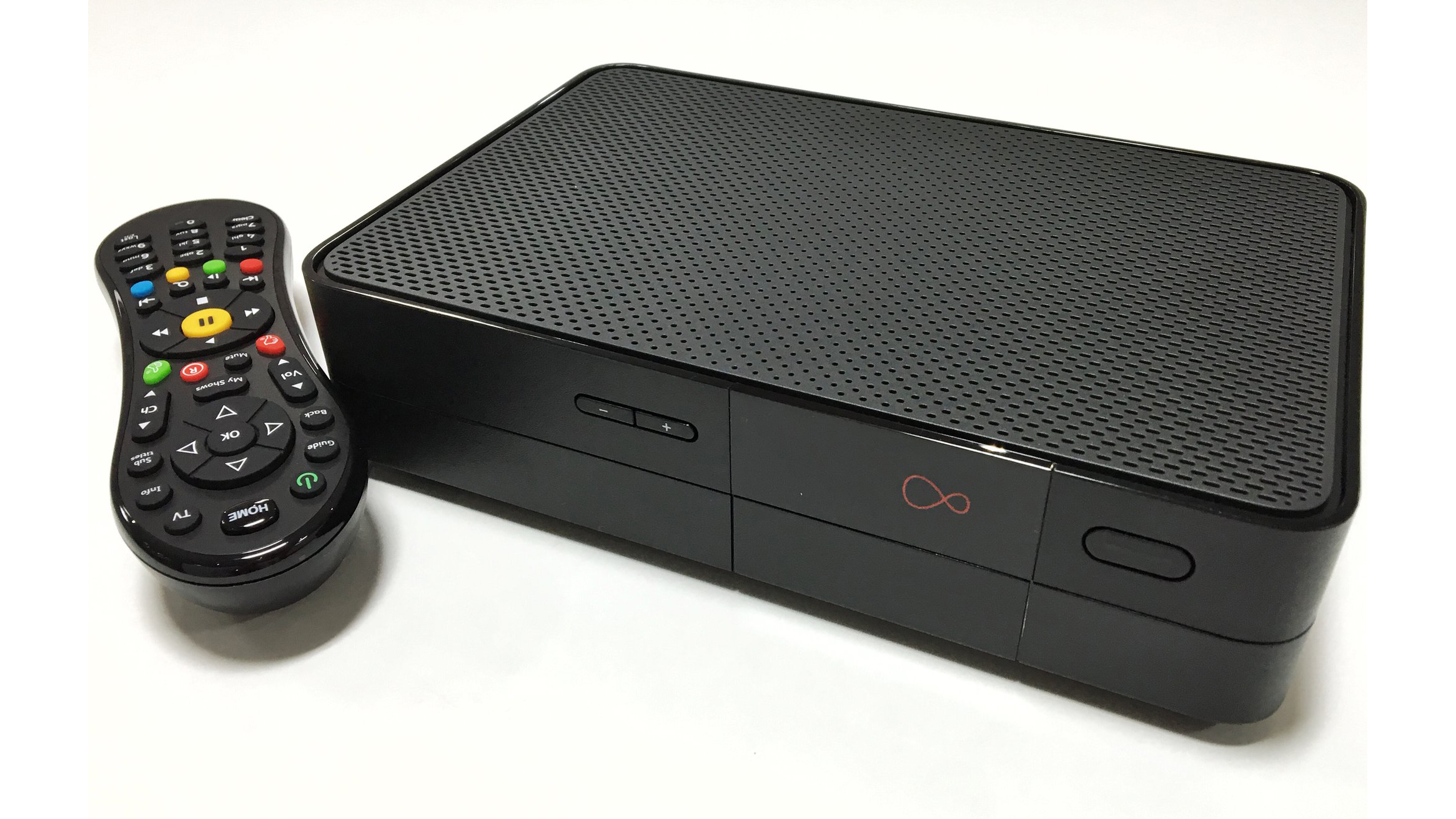
Overall, therefore, we think that while the Virgin V6 TV box has potential, right now it still lags behind Sky Q in most categories, notably design, user interface and availability of 4K Ultra HD content.
It is, however, a powerful piece of hardware that is packing all the necessary technology to deliver the next wave of TV entertainment. 4K and HDR capable (the latter not even something Sky Q can deliver right now), as well as supporting other cool features such as Dolby Atmos, the Virgin V6 does offer comparative value for money and, thanks to a massive selection of content to choose from, a great platform from which to enjoy your favorite shows, films and events.
You just need to remind yourself when making the purchase that while you may be totally ready now for 4K, HDR content, for Virgin it is a work in progress.

Rob has been writing about computing, gaming, mobile, home entertainment technology, toys (specifically Lego and board games), smart home and more for over 15 years. As the editor of PC Gamer, and former Deputy Editor for T3.com, you can find Rob's work in magazines, bookazines and online, as well as on podcasts and videos, too. Outside of his work Rob is passionate about motorbikes, skiing/snowboarding and team sports, with football and cricket his two favourites.